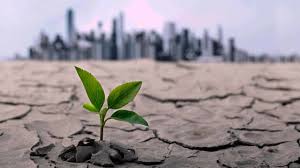CLIMATE CHANGE: ANOTHER LOOK AT NIGERIA’S 2060 ZERO CARBON EMISSION PLEDGE

Climate change is the biggest issue facing the world today. It is already threatening the welfare of man and badly affecting wildlife and biodiversity. Reports say that this condition is caused by burning of fossil fuels, deforestation and livestock farming.
The European Commission’s Climate Action report says that these factors are increasingly influencing the climate and the earth’s temperature by adding enormous amounts of greenhouse gases to those naturally occurring in the atmosphere, increasing the greenhouse effect and global warming. According to the United Nations Climate Action group identified fossil fuels including coal, oil and gas as some of the largest contributors to global climate change, accounting for over seventy five per cent of global greenhouse gas emissions and nearly ninety per cent of all carbon dioxide emissions. In Nigeria, the impact of climate change is already being felt. From increase in temperature to low crop yield, food shortage, public health crisis, reduced livestock production, loss of income, conflicts, decreased hydroelectric power supply, loss of shelter and road networks among others.
Nigeria’s 2012 flooding claimed three hundred and sixty three lives while that of 2022 killed six hundred and sixty two people; even as three thousand, one hundred and seventy four others suffered injuries. About two point three million people were displaced and five hundred and ninety seven thousand, four hundred seventy six houses were destroyed or damaged. A total of two million, four hundred and thirty thousand, four hundred and forty five individuals were displaced by the 2022 flood disaster.
The National Emergency Management Agency (NEMA) said that the country lost over two point six trillion naira to the disaster that swept through thirty of the
thirty six states in the country in 2012, and that over seven million people were
affected. According to the United Nations Intergovernmental Panel on Climate Change, the world must cut its carbon dioxide emissions to net zero by 2050 in order to prevent global warming.
It was, perhaps, for this reason that the Nigerian Government on November 2, 2021 pledged to end carbon emission by 2060 during the COP26 held in Glasgow, UK. Sixteen days later, it signed its Climate Change Bill into law; perhaps, to show the world that it was ready to keep the promise it made at the United Nations Climate Change Conference. In September 2023, President Bola Tinubu said that Nigeria needed to spend seventeen point seven billion dollars annually to be able to deliver on its climate target and energy transition plan.
He said that Nigeria’s Energy Transition Plan requires one point nine trillion dollars spending up to 2060, including four hundred and ten billion dollars above business-as-usual spending. It was on this Energy Transition Plan adopted in January 2022, that the country’s net zero carbon emission pledge by 2060 at COP26 was anchored. In October last year, the African Development Bank said that Nigeria required strong private sector investments to meet its climate change and green growth goals.
But for a country with a high rate of poverty, a debt of over ninety two billion dollars which is still growing, and unimpressive experience in attracting international climate finance, how does it intend to fulfill her 2060 net zero carbon emission pledge? There is need for the country to adopt natural climate solutions that will enable the ecosystem to naturally remove carbon dioxide from the atmosphere. There should be increased reforestation and afforestation where forests are either planted, replanted, or allowed to re-grow naturally because forests help in addressing climate change by serving as carbon removal.
Regenerative agriculture whereby lands are managed in a way that soils absorb and hold more carbon should also be encouraged. This contributes to the reversal of global warming by increasing the capacity of the soil to capture carbon.
The present push by the Federal government to expand the use of Compressed Natural Gas, should be commended as it would help reduce pollution and environmental degradation. This is about the first time Nigeria is toeing this path and the government of the country should take practical steps to achieve the desired goals.
Written by OBINNA ODOGWU









